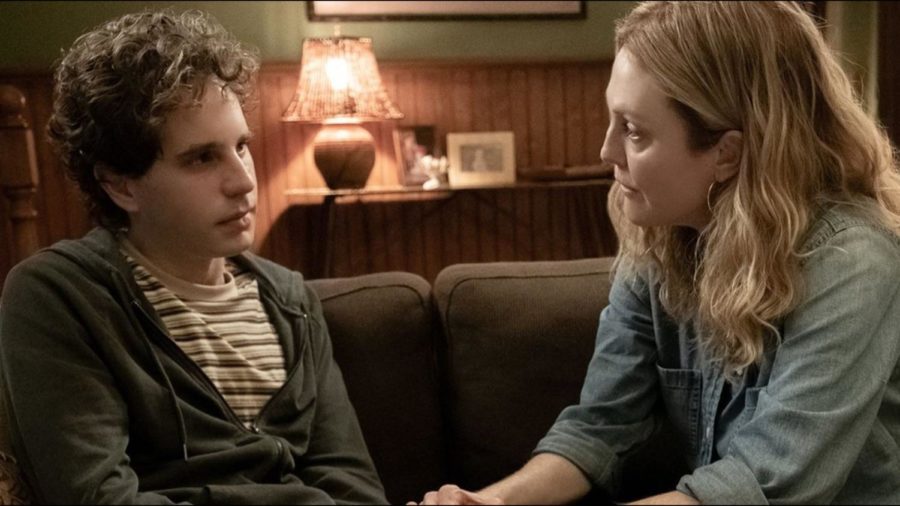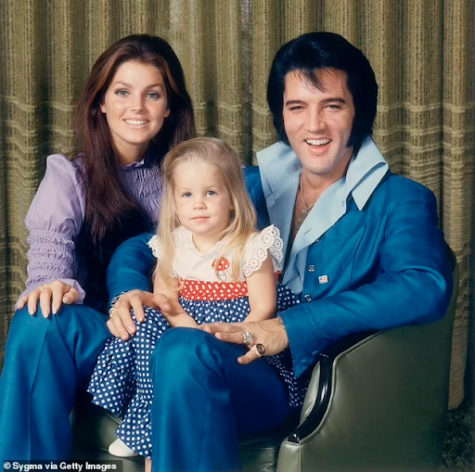A Letter to the “Dear Evan Hansen” Movie Producers…
Evan Hansen and Heidi Hansen, played by Ben Platt and Julianne Moore, bonding at the end of the movie remake (Collider).
November 2, 2021
Dear Evan Hansen Movie Producers,
Why did you remake “Dear Evan Hansen” into a movie? I saw this phenomenal musical for my Bat Mitzvah present, and I was mind blown. Ben Platt’s acting was raw, emotional, and genuine beyond words. It is such a necessary concept for today’s society, especially as it portrays a real teenager with real problems and does not sugar coat it at all. Unfortunately, the movie is quite the opposite. From the start of the movie, every line, every direction, every song had a forced, unauthentic feel. I felt almost uncomfortable watching it. When I saw “Dear Evan Hansen” on stage, there was no other feeling in me other than amazement. While watching the movie, I had a completely different reaction and did not even want to finish it quite honestly. Of those surveyed in Rampage, 66.7% disliked the movie. Rampage staff writer, Constantine Rutigliano, even claimed that “musicals just don’t need movies.” Would any movie based on a musical ever be successful, especially one so beloved? Or was it because Ben Platt, who hasn’t played Evan Hansen in years, was rescasted? I personally think both ring true, as no amount of good directing, writing, or casting could mimic the impact of a live performance.
Despite my disappointment in the movie, I still firmly believe that “Dear Evan Hansen” as a concept has been groundbreaking for mental health destimizigation and representation in the media. Among those surveyed in Rampage, 87.5% of respondents agreed with the statement that “mental health representation in the media destigmatizes it.” Not only does most of Rampage feel this way, but Student Assistance Counselor Ms. Mantashian does as well. “When we see, hear, or feel that kind of media or performance, it’s relatable in a sense,” says Ms. Mantashian. “If you’re living with those symptoms, you might feel alone or like something is wrong with you. If we don’t educate, where else would you get that information?” Ms. Mantashian points out that the general public is able to learn more about mental health through the internet. Despite this impressive development, “those who are ashamed might not disclose that information to loved ones and their support system, so being able to see their struggles through film or performance enables them to identify with that character, in turn lessening the shame.” As Evan Hansen sings in the show, “you feel a little less alone.” Ms. Mantashian also highlights the common search for meaning and connection that is often found through media, so no matter what age or background, a uniting experience is identified through representation like this. “‘Dear Evan Hansen’ helps to reduce stigma because there is not one person in the world who isn’t experiencing or caring for someone living with mental health symptoms. It’s important to know it’s not unusual, it’s common.”
“Dear Evan Hansen” encapsulates the struggle so many endure as an adolescent in a social media driven world. I found the musical to be honest, touching, and heart wrenching and the movie remake produced none of those emotions in me, except for the end. When Evan Hansen starts singing the song, “You Will Be Found,” the audience cannot help but tear up. I found myself emotional, despite my negative opinion about the movie. This response proves that such representation is so important, as no matter what the rest of the show is like, that song touches the hearts of every audience member. In the theatre, there was that same reaction. I find that leaving a masterpiece alone, such as “Dear Evan Hansen,” is necessary to maintain the integrity of the show and its message.
Sincerely,
Gabriella Goldberg







PTFLynn
Nov 9, 2021 at 9:59 am
Hi Gabriella. I appreciate and understand your comments about the movie. Frankly, I’m not sure any movie can stand up to the feelings we have when sitting in a theater, with the actors right in front of us. However, the majority of people cannot afford to travel to NYC (due to time or money constraints), or they do not have access to a local production. A movie lets them at least experience the story, even though it may not be as great as seeing it onstage.